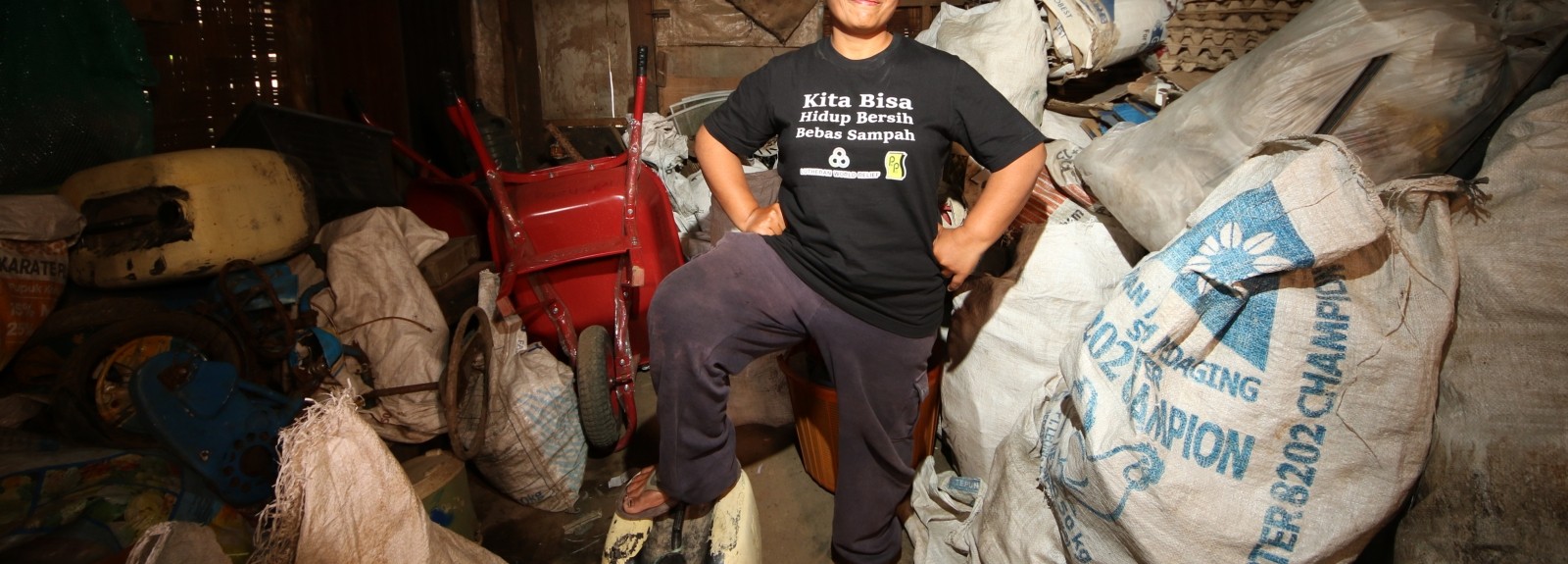Ingan Malem Pandia is a farmer in North Sumatra’s Karo Regency in Indonesia, a region notable for its high-quality Arabica coffee. Walking home every day from the farm, Ingan passed plastic bottles, bags and food packages littering the road.
“We have to do something about this before we are swamped with garbage and diseases,” she said.
When Lutheran World Relief (LWR) invited Ingan and other women in her community to join the Kopi Nande project, she enthusiastically jumped at the chance to tackle the trash problem around her. In just a year, the garbage bank Ingan started with her neighbors grew to have 185 customers and has sold over 20 tons of garbage for a total of USD 1,500.
Women's empowerment and WASH
Three years ago LWR, funded by The Starbucks Foundation, launched the Kopi Nande project reaching over 26,000 individuals (15,000 women) in five communities across Karo Regency to promote health and hygiene using LWR’s Learning for Gender Integration methodology. Approximately 80% of the population in these communities were members of coffee farming families who faced challenges with water, sanitation, and hygiene (WASH).
Kopi Nande utilized women-led approaches to raise awareness and change behaviors related to gender in its targeted communities. One such approach was the women-led garbage bank initiative. Women like Ingan and their families earned additional income by collecting plastic garbage for a recycler. This effort caught the attention of local municipalities who wished to replicate this activity in their own communities.
Women’s confidence is key to garbage bank success
Leadership training for women was one of the key elements of Kopi Nande. The trainings provided the women with the confidence they needed to participate actively in community meetings as well as meetings with the local municipal government to seek its support of the garbage banks and associated WASH issues. The women’s garbage bank representatives are now also invited to participate in the village’s annual budget planning process, expanding women’s representation in this important community-based process. In a survey conducted with project participants, 69% of the women leaders said they had increased their confidence in representing their communities’ interests.
Helmi Sembiring and her garbage bank management team sort collected garbage at their facility. Her garbage bank now has 140 customers, and they are looking to expand their collection efforts. (MK Wirasaputra for Lutheran World Relief)
The women’s new level of confidence was key to the success of the garbage banks and is an example of sustainable social capital development that will continue to bring positive changes long after the project’s end. Roselle Agner, LWR Senior Technical Advisor for Gender, commented, “The women of Kopi Nande have shown that equipped with organizational, business management and leadership skills, they can truly be a force for change in uplifting their families and communities.”
The Starbucks Foundation and Lutheran World Relief are building on the success of Kopi Nande with the new MECIHO project just launched in the same region. MECIHO will continue to use women-led approaches to improve health, hygiene and living conditions in Karo Regency, reaching 25,000 people across an additional six rural coffee-growing communities. This project is part of The Starbucks Foundation’s new goal to positively impact 1 million women and girls in coffee-, tea- and cocoa-growing communities by 2030.
Evi Esaly Kaban, Program Manager for the Kopi Nande and MECIHO Projects shared an important reflection, adding, “The Kopi Nande and MECIHO project taught me that it takes the collaboration of all stakeholders to enable women to be empowered.”



.jpg.jpeg?itok=c5iGib9g)